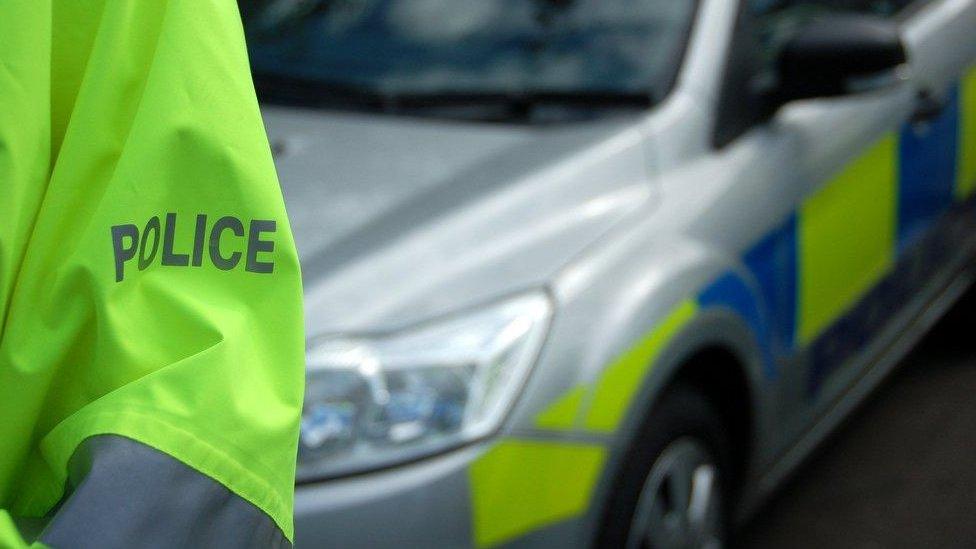Scotland's Police Authority: A watchdog with a troubled history
- Published
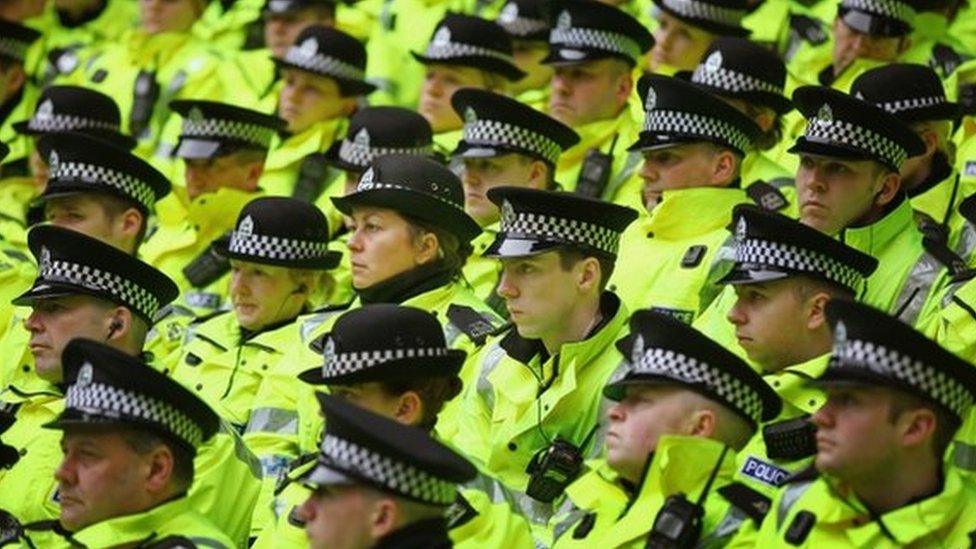
Police Scotland is the second biggest police force in the UK after the Met
Susan Deacon has resigned as chairwoman of the Scottish Police Authority, saying the system of police accountability is "fundamentally flawed". The SPA was only established in 2013, but it has travelled a rocky road.
The announcement by Prof Deacon, a former Labour MSP, came just days after the credibility of the Scottish Police Authority was publicly questioned at Holyrood.
Gill Imery, HM Chief Inspector of Constabulary in Scotland (HMICS), told MSPs senior officers had become "frustrated" by the lack of scrutiny from the SPA.
In the middle of a general election campaign the comments were barely picked up by the media, but they may have proved the final straw for Prof Deacon.
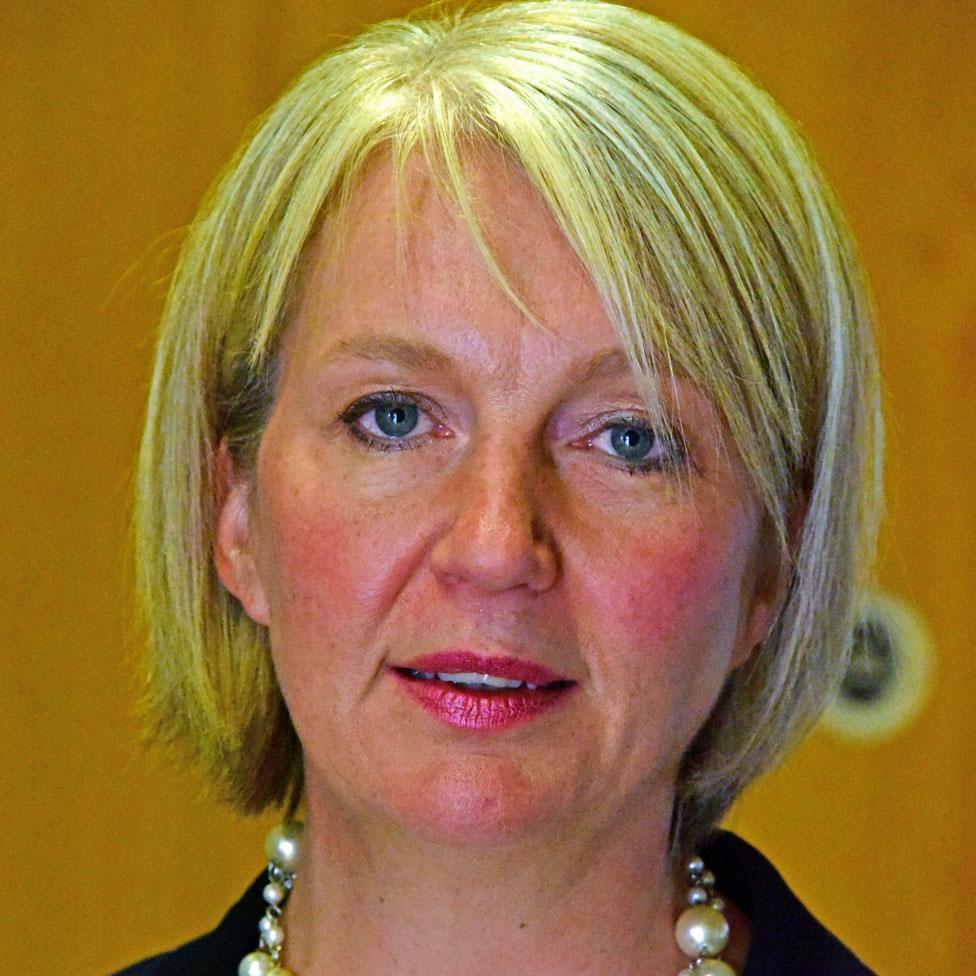
Gill Imery expressed serious concerns about the SPA when she appeared before the justice committee
Ms Imery told the justice committee on Tuesday that Chief Constable Iain Livingstone had asked HMICS to inspect various functions within the force because the SPA had failed to do so.
The authority's aim is "to increase public trust and confidence in the policing of Scotland in the way it carries out its functions and through the quality of its governance arrangements".
But Ms Imery said: "To be candid, I don't think the authority is doing either particularly well at the moment - it is neither promoting Police Scotland and advocating for Police Scotland nor is it holding Police Scotland to account effectively."
Calum Steele, general secretary of the Scottish Police Federation (SPF), later described Ms Imery's evidence as "devastating".
He tweeted: "This has to be a watershed moment."
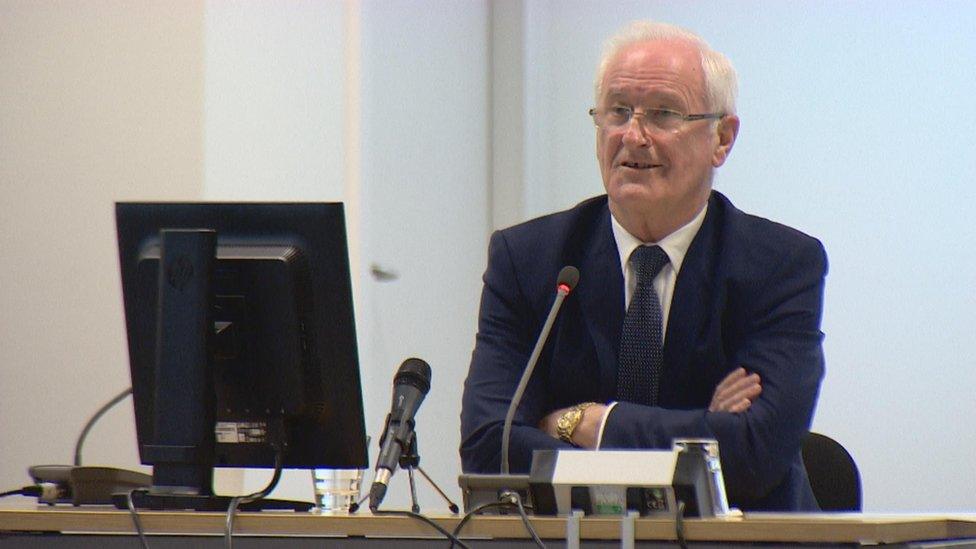
Vic Emery was the inaugural chair of the Scottish Police Authority
The resignation of Prof Deacon means the authority is now looking for its fourth head in just six years.
The first, Vic Emery, got into a number of public spats with Police Scotland's first chief constable, Sir Stephen House. He did not seek reappointment when his three-year term ended in August 2015.
That month also saw the resignation of Sir Stephen, who officially left his post four months later. Under his leadership the force had faced challenges ranging from the Clutha helicopter crash to the 2014 Glasgow Commonwealth Games.
But the former Strathclyde chief came under pressure over the three days it took his officers to respond to a fatal crash on the M9.
Sir Stephen also faced criticism about armed officers being put on routine patrol and his force's policies on stopping and searching juveniles.
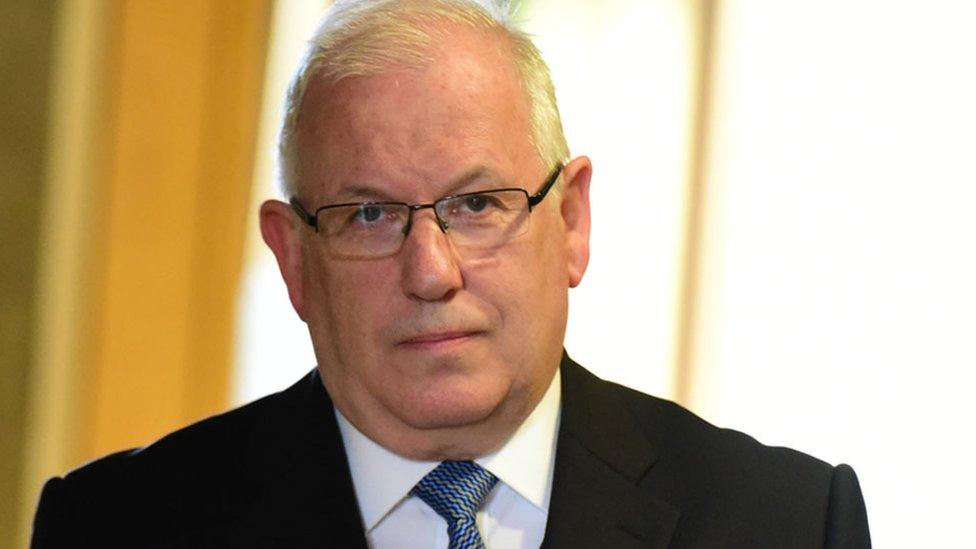
Andrew Flanagan resigned after criticism from two Holyrood committees
Meanwhile, Mr Emery was replaced by Andrew Flanagan, former chief executive of Scottish Media Group.
His tenure unravelled after less than two years when he came under heavy criticism from two Holyrood committees over governance and transparency at the SPA.
The criticism stemmed from two main points - Mr Flanagan's failure to circulate a critical letter from the police watchdog and a row over holding board meetings behind closed doors.
He insisted he had made "significant progress on a number of fronts" during his tenure, but said he did not want the "personalised" debate over his leadership to deflect attention from the force's 2026 policing strategy.
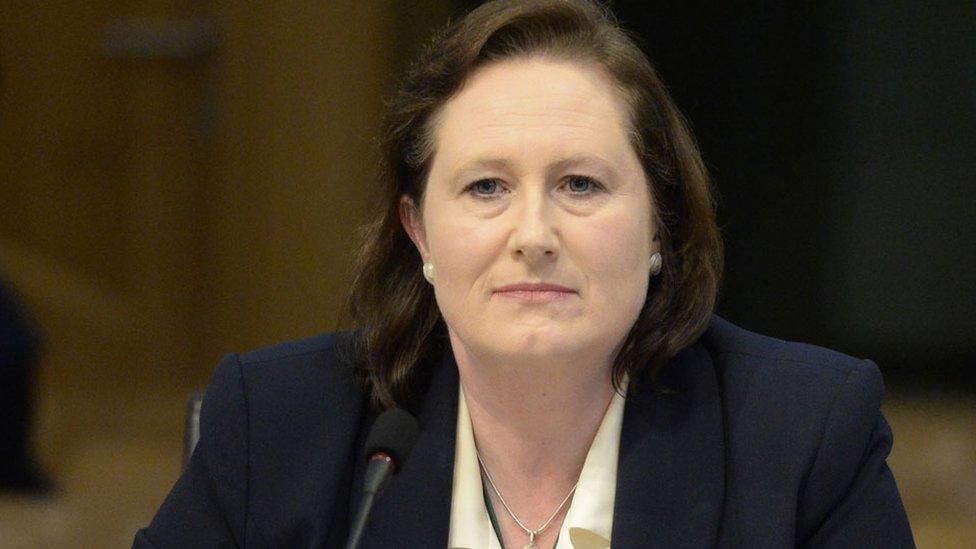
Susan Deacon was a Labour MSP for two terms, and served as health minister
Mr Flanagan resigned in June 2017 and was replaced five months later by former Scottish health minister Susan Deacon. The ex-Labour MSP said it was a "privilege" to be appointed.
She added: "The issues facing the SPA have been well documented and there is much to be learned from what has gone before, but my focus now is on the future.
"Policing is one of our nation's most important public services, and I look forward to working with colleagues in the SPA and in Police Scotland in addressing the challenges and opportunities ahead."
Just weeks after she became the chairwoman Ms Deacon had to respond to an Audit Scotland report which criticised the SPA for poor governance and a lack of transparency.
The public spending watchdog also said relocation expenses of £67,000, paid to a deputy chief constable, had not been properly disclosed in the accounts while the same officer's £53,000 personal tax liability was also paid by the SPA.
Auditor general Caroline Gardner said the report had identified "a number of instances of poor governance and poor use of public money".
She said: "This is unacceptable. An immediate priority for the new chair and interim chief officer must be ensuring that the organisation operates more effectively and transparently so that such occurrences are not repeated in the future."

What is the Scottish Police Authority?
The SPA was set up to hold Police Scotland to account when the single force replaced the old eight-force model in 2013.
The Police and Fire Reform (Scotland) Act 2012, external set out its five core functions:
Maintain the Police Service
Promote the policing principles set out in the 2012 Act
Promote and support continuous improvement in the policing of Scotland
Keep under review the policing of Scotland
And hold the chief constable to account for the policing of Scotland.
Chaired by a board, the SPA's members are local councillors and this year it held 19 public board meetings across the country. It also holds private committee meetings which cover areas such as forensic services and complaints and conduct.

Ms Deacon's early months were also overshadowed by allegations of gross misconduct against Chief Constable Phil Gormley.
The investigations rumbled on for seven months until Mr Gormley - who replaced Sir Stephen - quit. He went despite his continued denial of having done any wrongdoing.
Ms Deacon was then tasked with leading the recruitment drive to find his successor.
The appointment of Iain Livingstone was a popular one and marked a fresh start for the embattled force. But in recent months the body tasked with holding Police Scotland to account has faced mounting criticism.
An HMICS report, external in September concluded there was a "damning culture of failure" within the SPA and "no clear vision, strategy or plan in place".
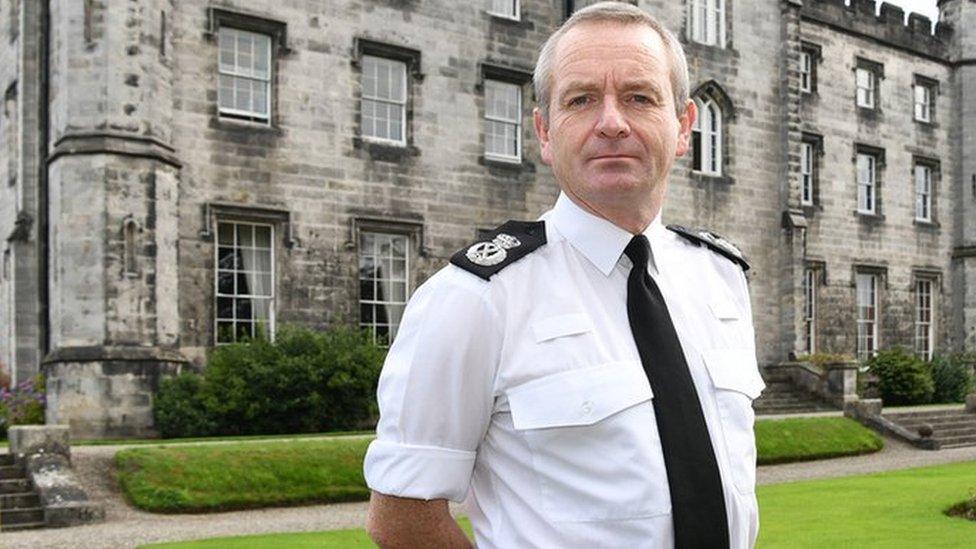
Iain Livingstone was a popular appointment as chief constable
The thematic inspection concluded each of the three SPA chairs had had a "different view of how the organisation should work". It noted the approaches have caused "uncertainty for staff" and claimed few members of the public understand the SPA's role.
Concerns were also expressed about its ability to balance its budget, although the report acknowledged policing faces major financial challenges.
Less than three months later Ms Deacon used her resignation letter to express her concerns about the SPA.
She wrote: "I have increasingly become convinced that the governance and accountability arrangements for policing in Scotland are fundamentally flawed, in structure, culture and practice, and I conclude that there is little more I can do to make these arrangements work effectively.
"I would suggest that the Scottish government thinks afresh about how the police service is scrutinised and held to account and how, or if, a better separation between politics and policing, and indeed between the police service and those who oversee it, can be achieved."
Andrea MacDonald, chairwoman of the SPF, said Ms Deacon's decision to quit was not a surprise but she warned that the next SPA chief faced an "irreconcilable conflict".
She added: "The funding for policing has never been under greater pressure, at a time the service itself has never faced greater demand."
- Published5 December 2019
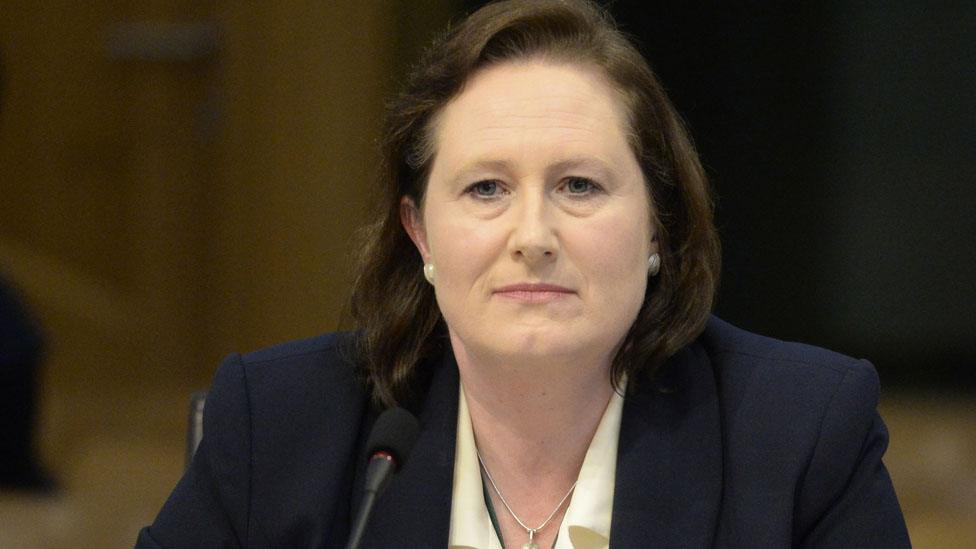
- Published23 February 2023
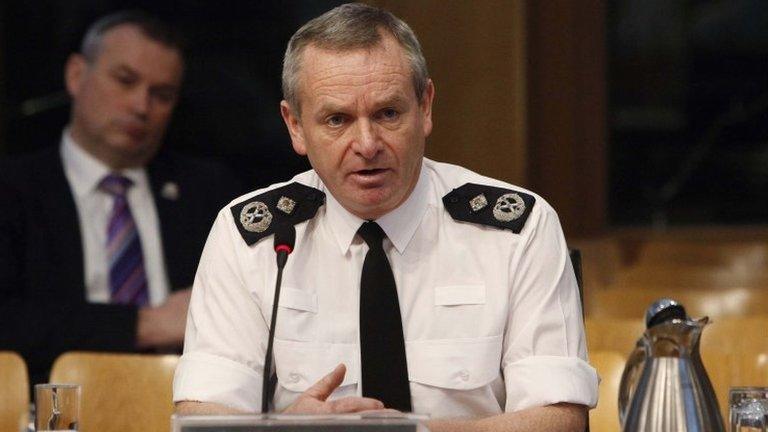
- Published1 April 2018
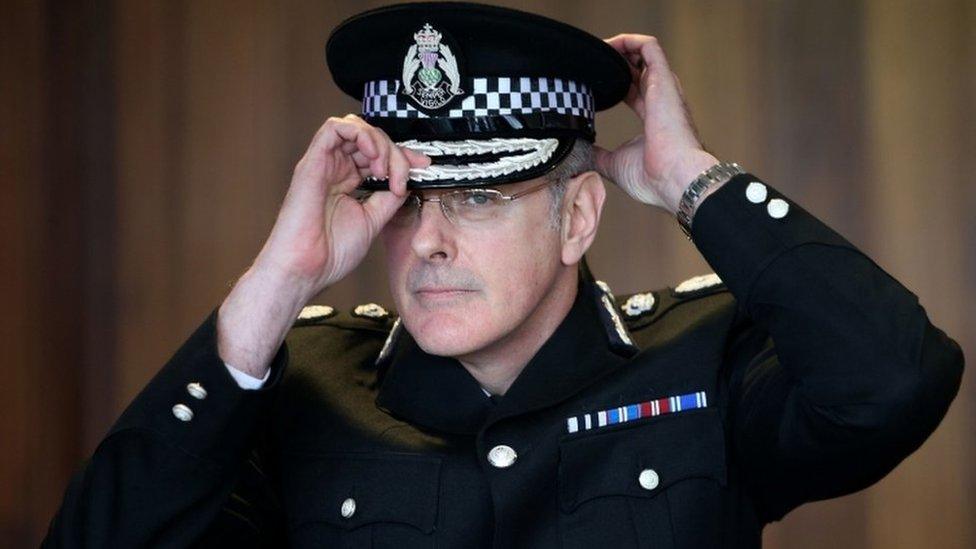
- Published8 December 2017
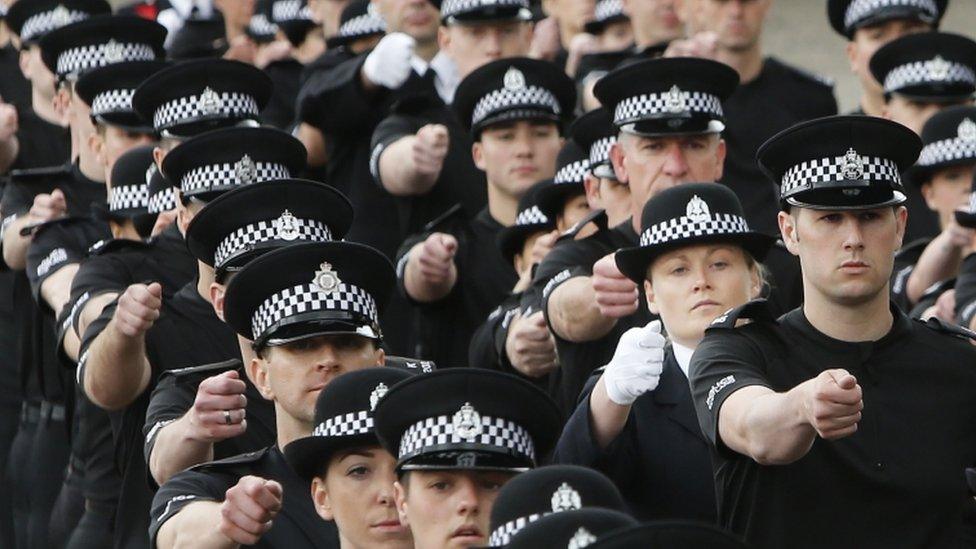
- Published16 November 2017
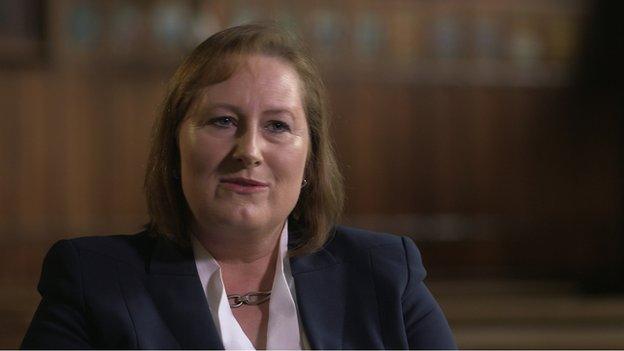
- Published14 June 2017
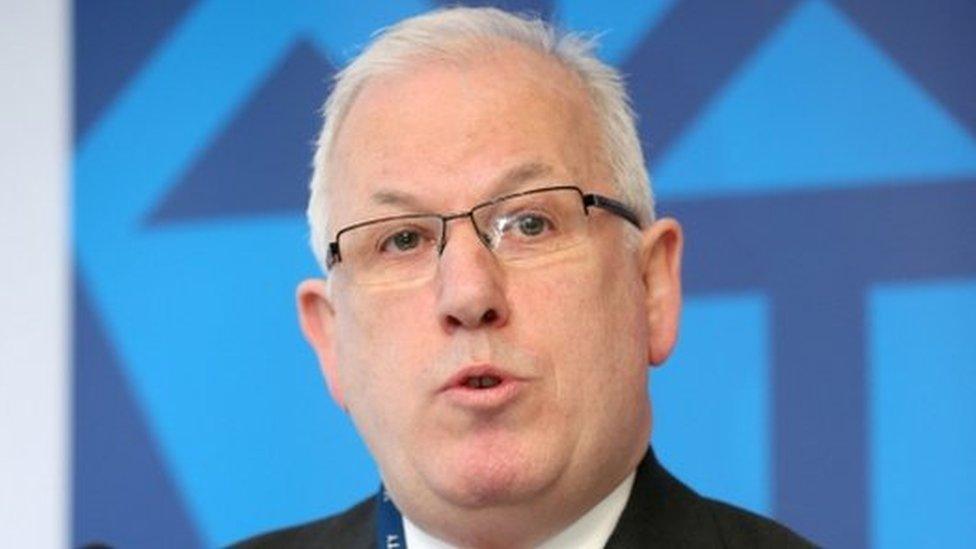
- Published14 June 2017
